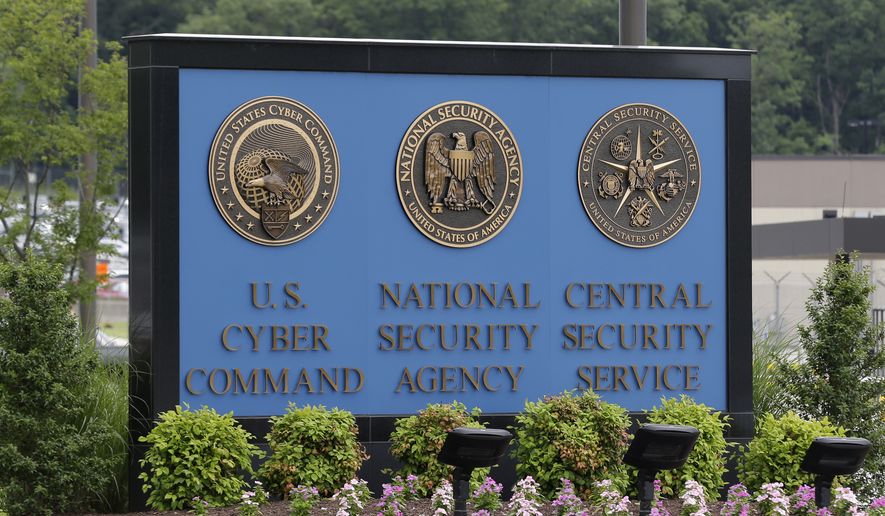A federal appeals court backed the National Security Agency’s phone-snooping program Friday ruling that Larry Klayman, the plaintiff and frequent court adversary to President Obama, never proved his calls were scooped up in the phone-records dragnet.
A three-judge panel for the U.S. Court of Appeals for the D.C. Circuit rejected an earlier preliminary injunction issued by a lower court, ruling that Mr. Klayman used “conjecture” when he said the metadata from his calls were being collected, since the government has never actually admitted to how broadly its searches go. Without being able to prove his records were involved, Mr. Klayman wasn’t able to make his case, the judges concluded, remanding the lawsuit back to the lower court for further proceedings.
“Plaintiffs complain that the government should not be allowed to avoid liability simply by keeping the material classified. But the government’s silence regarding the scope of bulk collection is a feature of the program, not a bug,” Judge Stephen F. Williams wrote.
Judge Janice Rogers Brown wrote in her opinion that Mr. Klayman fell short of being able to provide the proof needed to sustain a preliminary injunction in the case.
“Although one could reasonably infer from the evidence presented the government collected plaintiffs’ own metadata, one could also conclude the opposite,” she wrote.
The ruling reverses a lower court decision by Judge Richard J. Leon, who’d issued an injunction finding the bulk-data collection program likely unconstitutional, and ordered that Mr. Klayman’s data not be stored.
In the Friday ruling, the appeals court sent the case back to Judge Leon to decide whether to give Mr. Klayman a chance to try to gather more evidence — though the appeals court judges acknowledged that where a secret program was involved, that might not be possible.
Judge David Sentelle was even less convinced of the claims made in the case, writing that plaintiffs in the case “have not demonstrated that they suffer injury,” and noting in a partial dissent that he believed the case should have been dismissed altogether.
The program has allowed the FBI to obtain orders from the secret Foreign Intelligence Surveillance Court directing phone companies to turn over to the government telephone “metadata” — incoming and outgoing phone numbers dialed, and the times and duration of calls. Launched after the Sept. 11, 2001, terrorist attacks, the program was first detailed in leaks by former government contractor Edward Snowden in 2013.
Mr. Klayman said Friday’s ruling did nothing to dissuade his belief that his case would ultimately prevail, though he was angry the judges took nearly two years to rule and yet did not address the merits of the case.
“We’re confident in winning in the end,” he said, adding he plans to pursue evidence discovery. “When it goes back, there are lots of ways to skin the cat. We need to show that they have our records, and that’s not going to compromise national security. Or Judge Leon can call the NSA into his chamber and get the information.”
Friday’s decision does not rule on the legality of the phone-snooping program. The only appeals court to issue a previous decision on that matter was the 2nd Circuit Court of Appeals, which in May ruled the program “exceeds the scope of what Congress has authorized” under the USA Patriot Act. The court however, stayed its own injunction in anticipation of action by Congress.
Congress passed a law earlier this year to dramatically scale back the NSA program. But the program remains in effect through November, under a six-month transition period, which gives the NSA a chance to try to have private companies keep the data, which federal agents could then query in very specific cases.
Alex Abdo, staff attorney with the ACLU’s Speech, Privacy, and Technology Project, said Friday’s ruling still keeps the heart of the lawsuit in tact.
“Today’s ruling is merely a procedural decision that does not address the constitutionality or legality of the NSA surveillance program,” Mr. Abdo said. “Only one appeals court has weighed in on the merits of the program, and it ruled the government’s collection of Americans’ call records was not only unlawful but ’unprecedented and unwarranted.’”
• Stephen Dinan can be reached at sdinan@washingtontimes.com.
• Andrea Noble can be reached at anoble@washingtontimes.com.




Please read our comment policy before commenting.